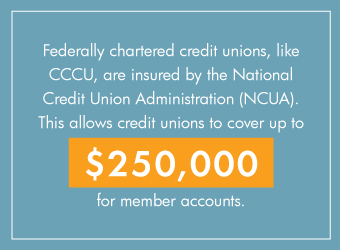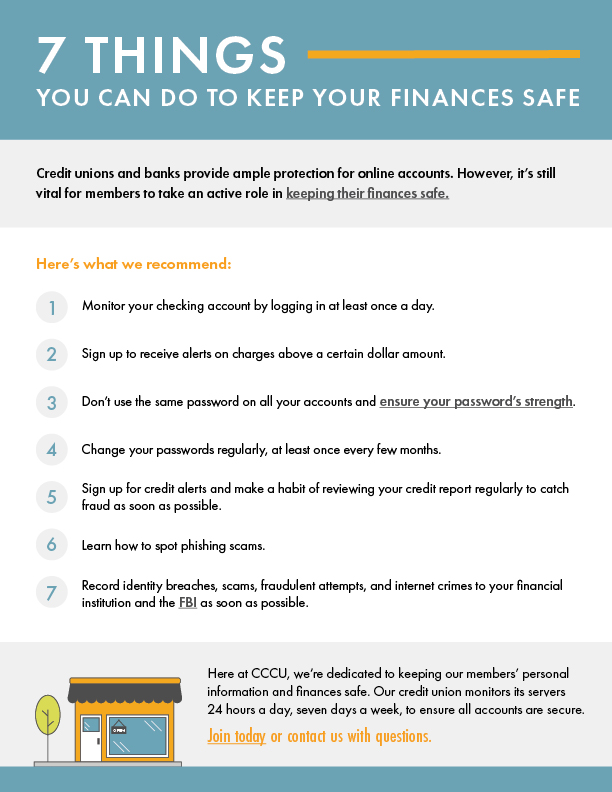Don't Get Played: How to Spot Impersonation Fraud
Unfortunately, impersonation fraud is becoming a popular scam with fraudsters who are continuously trying to take ...
Read More
In the age of phishing emails, robocalls, and data breaches, many people are rightfully concerned about the security of their money. This has led lots of folks to wonder if digital banking is as safe as in-person banking.
Our community credit union shares insight into how banks and credit unions safeguard your funds and what you can do to avoid fraud. Federally chartered credit unions, like CCCU, and most state-chartered credit unions are insured by the National Credit Union Administration (NCUA), which provides coverage through the National Credit Union InsuranceFund (NCUSIF). Like FDIC insurance, this allows credit unions to cover up to $250,000 for member accounts.
Federally chartered credit unions, like CCCU, and most state-chartered credit unions are insured by the National Credit Union Administration (NCUA), which provides coverage through the National Credit Union InsuranceFund (NCUSIF). Like FDIC insurance, this allows credit unions to cover up to $250,000 for member accounts. 


